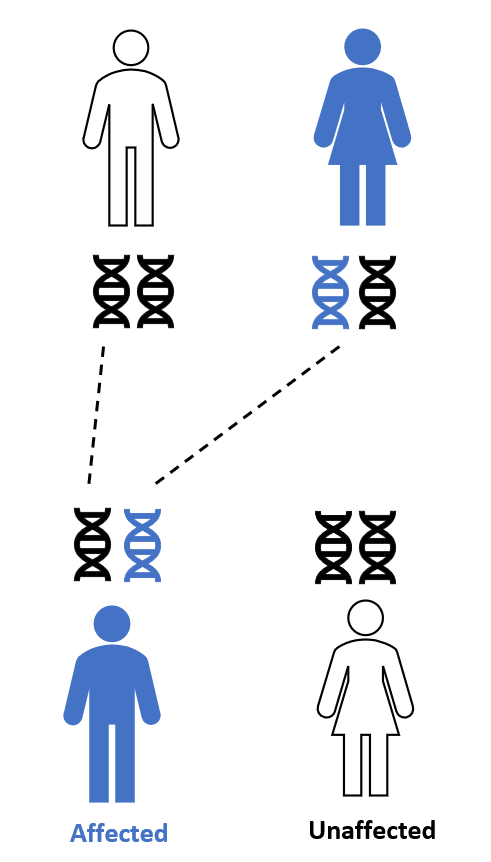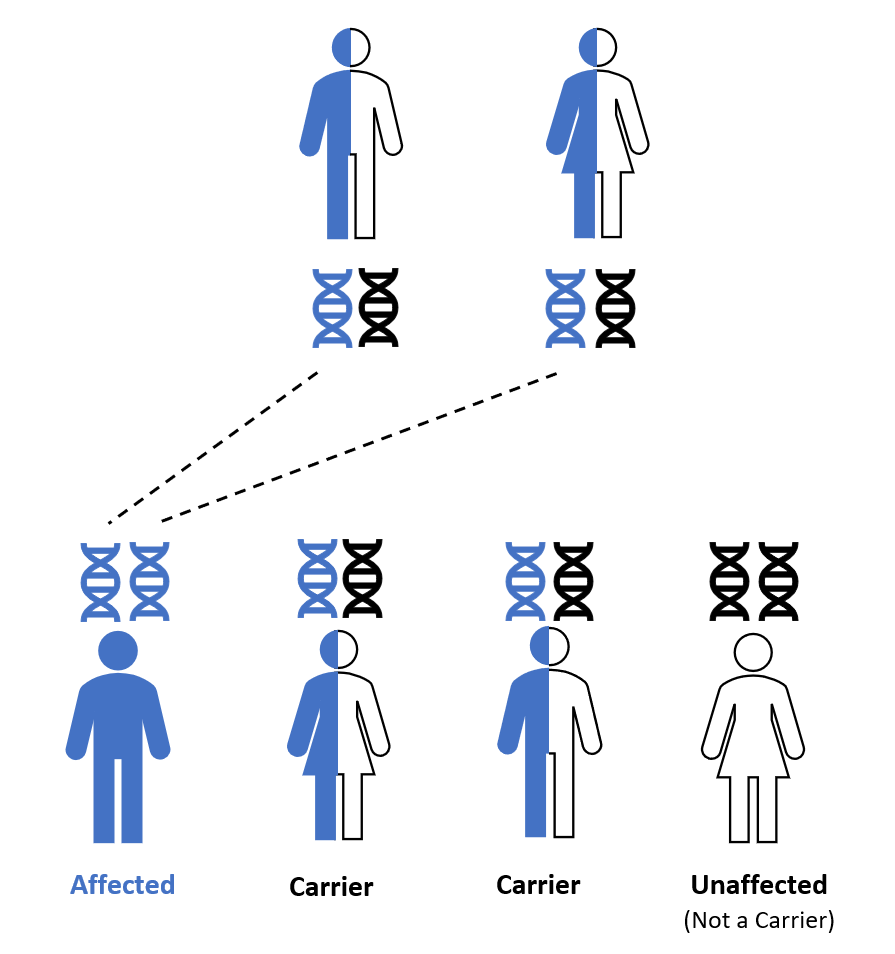Some gene variants are inherited in an autosomal dominant pattern. This means that it is only necessary to have one variant in a gene to have the associated disease or predisposition to disease. The disease-causing variant is often inherited through multiple generations with each parent having a 50% chance of passing the variant on to each child. Both males and females can pass on and inherit the variant. Some of the autosomal dominant genes have incomplete penetrance; this means that a gene variant may not cause Parkinson’s disease in every person who inherits it.
Autosomal Dominant

Autosomal Recessive

Other gene variants are inherited in an autosomal recessive pattern. This means that a person has to inherit two gene variants (one from each parent) to have the disease. Individuals with only one variant are sometimes called carriers and typically will not have the disease. If a person has two recessive variants, we can usually assume that one variant came from each of their parents. Individuals with two recessive variants will automatically pass one variant on to each child. Both males and females can pass on and inherit these variants.
In addition to the gene variants discussed above, there are other genetic factors being studied that may contribute to Parkinson’s disease in small ways, and do not fit a dominant or recessive inheritance pattern.
